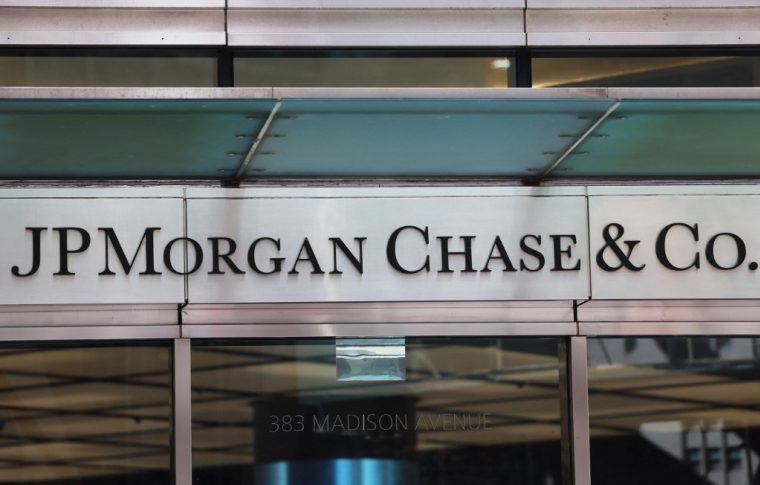J.P. Morgan Says Dollar-Equity Correlation Is Rising — Issues Bold Forecast
“We suspect one reason is that the decision to hedge currency risk in an equity portfolio is not a simple one,” they wrote.

Quick overview
- The U.S. Dollar Index and MSCI World Local Index are showing increasingly positive correlations, indicating a shift in their relationship.
- Analysts at J.P. Morgan Chase suggest that the dollar may no longer serve as a strong diversifier for equity portfolios.
- Historically, the dollar-equity correlation has been negative, but this year's trend towards zero or slightly positive is seen as a normalization.
- The magnitude of the correlation is crucial, as a low correlation may not significantly impact volatility in unhedged U.S. equity portfolios.
The bank noted that weekly returns on the U.S. Dollar Index—which measures the greenback against a basket of peer currencies—and the MSCI World Local Index are showing increasingly positive correlations.

A stronger correlation between the U.S. dollar and global equities this year could mean the greenback is no longer a strong diversifier for equity portfolios, according to analysts at J.P. Morgan Chase.
Using a standard correlation scale ranging from -1 to +1, a positive coefficient typically suggests that the two assets tend to move in the same direction.
Historically, the dollar-equity correlation has often been in negative territory, especially in the post-pandemic period up until last year, with sporadic sub-zero readings dating back to the 1980s.
“In other words, this year’s shift in dollar-equity correlation toward zero or slightly positive appears to be more of a normalization than the emergence of a new and unusual regime,” the strategists wrote.
A Changing Relationship Between the Dollar and Equities
While the dollar may no longer provide as much of a diversification benefit for equity investors, J.P. Morgan emphasized that the magnitude of the correlation matters just as much as the direction.
At or slightly above zero, the projected range for 2025 is “too low to meaningfully amplify volatility in an unhedged U.S. equity portfolio,” the analysts explained.
In theory, this reduced diversification benefit could weigh on the dollar over time. However, they noted that historical evidence linking rising dollar-equity correlations with downward pressure on the currency is limited.
“We suspect one reason is that the decision to hedge currency risk in an equity portfolio is not a simple one,” they wrote.
Unless the correlation between the dollar and equities becomes consistently and decisively positive—similar to the 0.2 to 0.4 range seen from the mid-1980s to 2007—it’s unlikely that currency hedging will provide a sustained and significant reduction in overall portfolio volatility, they concluded.
- Check out our free forex signals
- Follow the top economic events on FX Leaders economic calendar
- Trade better, discover more Forex Trading Strategies
- Open a FREE Trading Account
- Read our latest reviews on: Avatrade, Exness, HFM and XM